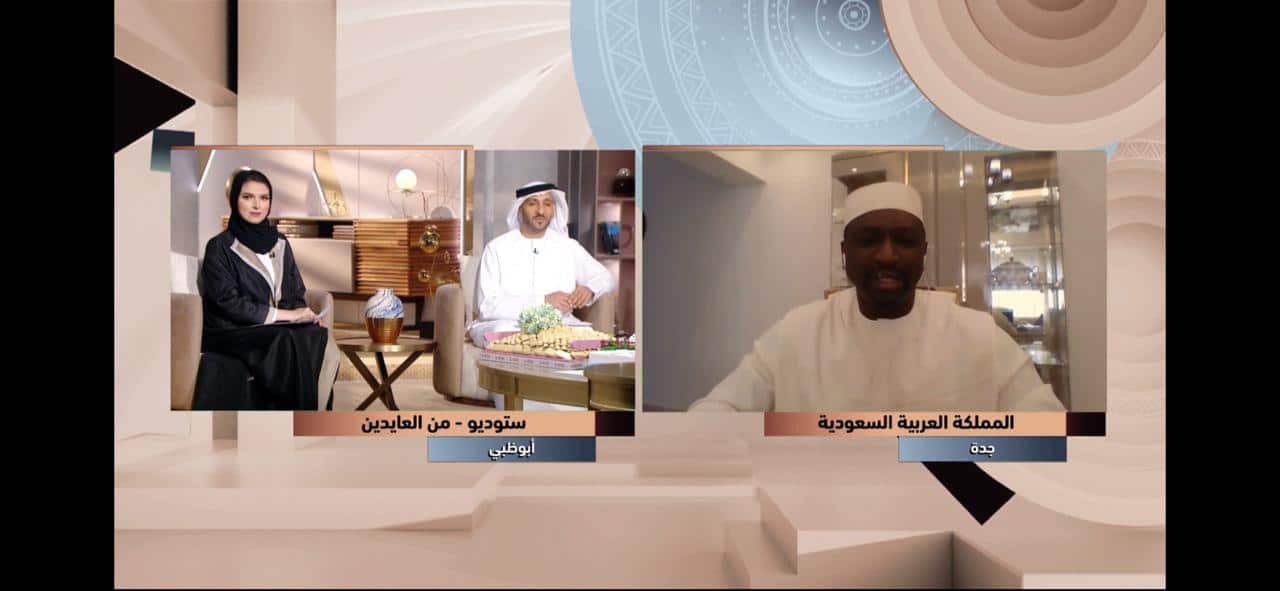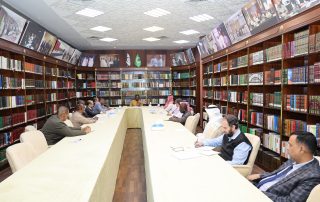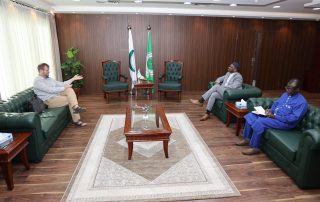
Abu Dhabi Channel conducted a television interview via satellite with His Excellency Prof. Koutoub Moustapha Sano, Secretary General of the International Islamic Fiqh Academy (IIFA), on the morning of Eid al-Adha, Tuesday, 10 of Dhu al-Hijjah 1442 corresponding to July 20, 2021. The interview was about the rituals of Hajj, its history, and ethics.
His Excellency answered the questions of the program presenters about Hajj in the past, explaining that in ancient times pilgrims were suffering harsh conditions, and they faced great difficulties, both in terms of the means of transportation they used to reach Mecca, or the means they used to commute between the holy sites. Therefore, a famous saying prevailed, which was: “The one who goes to Hajj is missing, and the one who returns from it is born again”. This saying is a clear expression of the dangers, difficulties, and suffering the pilgrims were going through, as well as a reference to those turbulent security conditions that the pilgrims were exposed to on their way to Mecca, to the point that the Muslim jurists put the condition of “road security” among the conditions of the obligation of Hajj.
His Excellency explained that the pilgrims used primitive means of transportation, including camels, mules, and donkeys, and some of them walked the whole distance, spending days, months, and years, and that the convoys of pilgrims were often attacked by bandits. As for their movement between the holy sites, it was also a kind of suffering and hardship, as they were exposed to the searing sun, rain, floods, and hurricanes that occurred during some Hajj seasons.
His Excellency also made it clear that by the grace of God and then with the dedication of the country that God honored by serving the Two Holy Mosques, all these difficulties have disappeared, as pilgrims come to the Holy Land via planes and locomotives and move between the holy sites by modern means of transportation that provide comfort and ease. As for security, it has become prevalent at all levels, which has made Hajj easier and more comfortable today than at any time in history.
As for the ethics of Hajj, His Excellency clarified that the Hajj has ethics and morals, as it has rules and conditions, and pointed out that God’s Saying: “Ḥajj is [during] well-known months, so whoever has made ḥajj obligatory upon himself therein [by entering the state of iḥrām], there is [to be for him] no sexual relations and no disobedience and no disputing during ḥajj.” (Al -Baqarah:197), is an honest summary of the most important ethics and morals that the pilgrim should have, namely: complete avoidance of arguments, discussions, disputes, backbiting, gossip, corruption among people, preoccupation with talking about worldly matters, and the need to stay away from all forbidden things, especially with regard to his relationship with his wife and women around him, and the necessity of being patient, compassionate, calm, dignified, gentle with the weaker person, and avoiding pushing and shoving. It is also very important to adhere to the regulations, precautions, and procedures that have been put in place to provide comfort, security, and safety for pilgrims so that they can perform their duty with comfort and ease.
Finally, His Excellency congratulated everyone on the blessed Eid al-Adha, asking God for many happy and blessed returns to the Muslim Ummah and to humanity, and he also prayed to God to accept from everyone the good deeds, and to speed up the demise of the Corona pandemic from the whole world.
Read Also
Lastest








